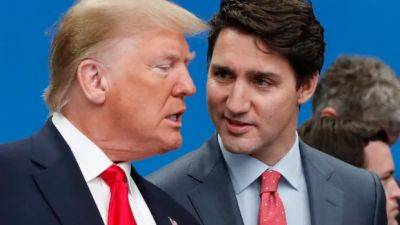How Trump's promise of mass deportations could affect Canada's border
It was 2017 when Canadians first began to hear of an obscure border crossing near Hemmingford, Que., that was witnessing an unusually high number of illegal crossings on foot.
Large numbers of Haitians, many of them families dragging heavy suitcases, were flying from homes in Florida and New York City to upstate Plattsburgh, N.Y., and then taking a taxi to the tiny farming community of Mooers, N.Y.
Roxham Road would soon become a major news story and a political issue.
In March last year, Canada and the U.S. agreed to the first major change to the Safe Third Country Agreement (STCA) in 20 years, expanding its terms to cover the entire land border rather than just formal crossings.
That STCA expansion effectively ended Roxham Road's usefulness to migrants as an end-run around that system.
But one lesson from the Roxham Road experience remains highly relevant and concerning in light of former U.S. president Donald Trump's promise to deport millions of immigrants if he wins a second term: any changes to the status of undocumented migrants in the U.S. can be swiftly felt at the Canadian border.
A minor change causes a rush at Roxham Road
The Roxham Road influx was triggered by the ending of an obscure provision of the U.S. immigration system that had extended Temporary Protected Status (TPS) — immunity from deportation — to Haitians in the wake of the 2010 Port-au-Prince earthquake.
TPS was also cancelled for Central American immigrants who had been protected because it was deemed unreasonable to return them to an area devastated by Hurricane Mitch.
They too began to show up at the New York-Quebec border.
Although the TPS cancellation affected only about two to three per cent of undocumented migrants in the U.S., it was nonetheless






